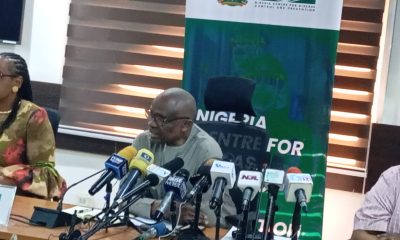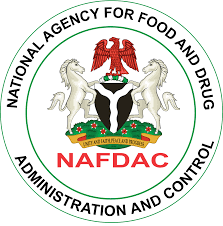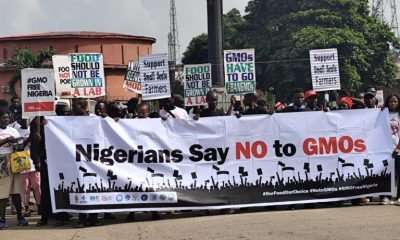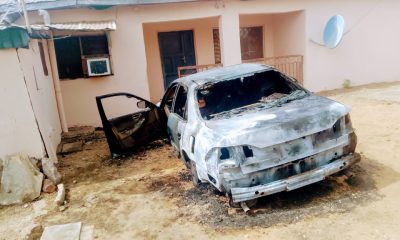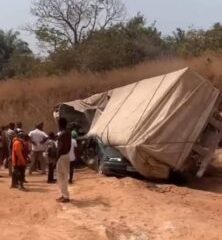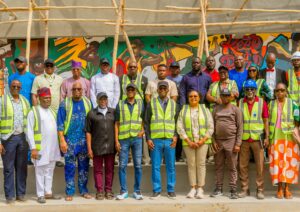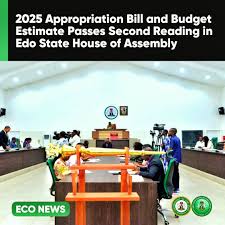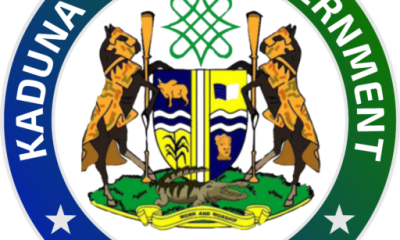OPINION
Nigeria, In Times Like This…

By Olusegun Adeniyi
The Independent National Electoral Commission (INEC) had assured the country of its readiness to deploy the Bimodal Voter Accreditation System (BVAS) and the Election Result Viewing Portal (IReV) in the build-up to last Saturday’s presidential and national assembly elections.
These two technological innovations would have enhanced the transparency of their process and the integrity of outcomes. INECs inability to deploy them as effectively as promised led to the long-forgotten ‘Orubebeism’ at the Collation Centre on Monday by Senator Dino Melaye of the main opposition Peoples Democratic Party (PDP) and the crisis we must now do everything to avert.In the early hours of yesterday, INEC declared Asiwaju Bola Ahmed Tinubu, candidate of the ruling party All Progressives Congress (APC), as president-elect.
With a total of 8,794,726 votes, he defeated 17 other candidates, including former Vice President Atiku Abubakar of the main opposition Peoples Democratic Party (PDP) who polled a total of 6,984,520 votes and Mr Peter Obi of the Labour Party (LP) who secured a total of 6,101,533 votes. Senator Rabiu Musa Kwankwaso of the New Nigeria Peoples Party (NNPP) came fourth with 1,496,687 votes. Instructively, Tinubu and Atiku each won in 12 states, Obi won in 11 states and the Federal Capital Territory (FCT), Abuja while Kwankwaso won only in Kano. A high-stake election which ended up that close left no margin for error. Yet, last Saturday left no doubt that INEC overpromised and underdelivered.I have read the reports of various observer teams, including that of the International Republican Institute (IRI) and National Democratic Institute (NDI). The question being raised about the transparency of INEC rests on the deployment (or lack thereof) of technologies it promised. BVAS uses biometrics (voter fingerprints and facial recognition) for the accreditation process and available reports indicate that it worked substantially in that regard last Saturday. But BVAS is also programmed to capture images of the polling unit result sheet (Form EC8A) for real-time upload to the INEC Result Viewing Portal (IReV) which allows members of the public to create personal accounts to access stored as PDF files. That was where the problem arose.
In my column two weeks ago, ‘INEC and the Lesson from VAR’, I wrote that when we use technology to drive any process, we make a critical assumption that those managing it will follow the rules. But, as I also argued, even the most advanced technology can be compromised by human omission or commission, which can then cast doubt on the fairness of the entire process, erode public trust and undermine the credibility of outcome. INEC Chairman, Prof Mahmood Yakubu has a responsibility to explain why, as YIAGA Africa pointed out in its statement, only 73 percent of polling unit-level results had been uploaded as at yesterday afternoon. By some curious twist of fate, as I also explained last week, this presidential election left us with a WaZoBia construct that stands on the ancient political tripod of the ethnic affiliation of the three leading candidates. If we had political leaders with sufficient acumen for forging elite consensus, as the military did in 1999, perhaps the primaries of the political parties might have produced different outcomes that would have made the election less fractious. Sadly, that opportunity was missed. Unless our leaders can come up with strategic concessions to assuage genuine feelings of alienation in certain quarters, we could face dire consequences. But this is an issue we will have to deal with another day. Meanwhile, regardless of how we may feel about the outcome of the presidential election, there are many lessons to take from what happened last Saturday. The first has to do with the cost of running elections in Nigeria. The closure of borders, shutdown of businesses and offices, restrictions of movement during the exercise, deployment of a disproportionate number of police and security personnel as well as military troops was a costly exercise. We conduct elections almost like war. All this because we distrust one another not to game the exercise.
For this election, a ‘Naira confiscation’ policy was even conceived and enforced by the Central Bank of Nigeria (CBN) ostensibly to prevent vote-buying. In the process, lives and livelihoods have been ruined. Incidentally, all the APC Governors who cared so much about our ‘Nairalessness’ that they threatened fire and brimstone before the election have forgotten about a certain Mr Godwin Emefiele. Similarly, all the PDP politicians who were hailing President Muhammadu Buhari, are now saying something else. Nigerian politicians are incredible! If there is any lesson to take from all the drama, it is about the desperation for power by our politicians. Their concerns are never about the ordinary people. With eyes on the enormous spoils of office attached to these positions, we can understand the ‘end justifies the means’ approach to every election in Nigeria. There are other issues thrown up by the presidential election result, including the implication of a divided opposition against the party in power. It was the subject of my 2011 research paper at the Harvard University Weatherhead Centre, where I argued that whenever and wherever opposition politicians stand divided before the polls, they are priming themselves for unity in defeat: (http://programs.wcfia.harvard.edu/fellows/publications/divided-opposition-boon-african-incumbents. The three leading opposition candidates who contested last Saturday were members of the PDP until last year before they splintered. Yet, the votes they collectively secured are far larger than what the APC candidate received for his victory.
From the result, Tinubu won the election with just about 35 percent of the total votes while the remaining 65 percent of the total votes were cast for the other candidates. Besides, the presidential primaries of the PDP were so mismanaged that five of their Governors (and their allies, especially in the Southwest) were allowed to go rogue and hobnob with the APC for the presidential election. It is interesting that the PDP and LP are now collaborating only after the election when it was always obvious that if the two parties worked together, APC stood little or no chance at the polls.
The second lesson is that if you run against the political tide, especially in whatever is considered group interest, you will be swept off. We saw a lot of that in the Southeast where Hurricane LP (or more appropriately, Hurricane Peter Obi) upended many pollical ambitions. For the first time since 1999, the people went against the PDP to pitch tent with the LP that secured 94 percent of the total votes in Anambra State, 93 percent in Enugu, 80 percent in Ebonyi, 78 percent in Imo and 75 percent in Abia. The bigwigs in PDP and APC are now counting their losses. Governor Ifeanyi Ugwuanyi of Enugu State, a former member of the House of Representatives, who sought to move to the senate had his ambition truncated by Okechukwu Ezea of LP who polled 104,492 votes. That more than doubled the 46,948 votes he (Ugwuanyi) secured as a PDP candidate.
The third lesson is that political parties appear less important in this election cycle. The people are now quite aware that one is not different from the other and that all of them, without exception, are mere vehicles to secure power. And with that, it is also easy for the people to vote for individuals they like, regardless of the party platform on which the person is running. The good side to this is that if popular candidates are denied tickets (that are often traded) in the major parties, they can run on the platform of fringe parties and still win. We saw that in a few states.
My friend and former House of Representatives member, Ahmed Wadada, last Saturday won the Nasarawa West Senatorial District election on the platform of the Social Democratic Party (SDP). That is the seat held by the current APC National Chairman and two-term governor of the state, Abdullahi Adamu. Wadada was in the APC, but Adamu ceded the senatorial ticket to Shehu Ahmed Tukur, an architect and former gubernatorial aspirant in the state. At the election, Wadada polled 96488 votes as against the 47,717 votes garnered by the APC candidate. The PDP candidate, Musa Galadima scored 46,820 votes while Bala Tongurma of the Labour Party scored 33,228 votes.
Instructively, many serving and former governors also lost their bids for the Senate that has since become their ‘retirement home’. Last Saturday, the apostle of ‘Conjugated Agglutination’ was defeated by the incumbent Senator Jarigbe Agom of the PDP, who garnered 76,145 votes as against the 56,595 votes secured by the Cross River State Governor. For Prof Ben Ayade, an election of ‘Infinite Transposition’ has given way to the ‘Kinetic Crystallization’ of a defeat that may have provoked the ‘Qabalistic Densification’ of ‘Olimpotic Meritemasis’ proportion. There is also an interesting dimension to this election based on the statistics sent to me last night. Peter Obi won the Southern votes while Tinubu won the Northern votes. Out of the 14.7 million votes cast in the North, Tinubu, Atiku and Obi won 38, 36 and 14 percents, respectively. Out of the 9.3 million votes cast in the South, Obi, Tinubu and Atiku got 43, 34 and 19 percents, respectively. We must interrogate the meaning of all these.
I invested no emotion in this election. But I followed it very closely. I particularly enjoyed the ‘WhatsApp classes’ on several platforms that featured a deluge of videos and text messages from partisans. Now that the presidential election is over, we need to get back to real life. There are three critical but unpopular decisions that the next administration must take if we are to get out of our current fiscal mess. We need to put an end to the wasteful regime of subsidy in the downstream sector of the petroleum industry and the multiple exchange rates by the CBN. We also must increase the revenue base by making Nigerians pay tax. These are decisions that will be difficult for any leader.
In the weeks ahead, I am going to write about Atiku who has had a sterling political career even though he may have missed out on the ultimate prize. I have had the opportunity of close interactions with him over the years and he is a genuine patriot who would have made a very good president. But I have always suspected that the incumbent being a northern Fulani man like Atiku is more an albatross than an advantage for his aspiration. Some of his inner cycle never agreed with me on that. Incidentally, just two weeks ago, as I was cleaning my study, I found a book I never knew I had: “Atiku: The Story of Atiku Abubakar”, by the late Adinoyi Ojo-Onukaba. I read the fascinating authorized biography last weekend and I have learnt more about the person and politics of Waziri Adamawa.I am also going to be writing about Peter Obi who is the real story of this election in so many ways. I must admit that I overrated the power of party structure or perhaps underrated the mobilization capacity of the former Anambra State Governor despite his running on a weak platform. He surpassed my expectations and that of many. As I wrote in my recent column in January, given the nature of our political arrangement in Nigeria, there is a value in Obi’s aspiration that transcends his personal ambition. Nothing advances a society better than equity in the distribution of political opportunities, especially at the highest level of government. That’s why his defeat is painful for several constituencies, including many young Nigerians who campaigned for him. But this can be the beginning of something great for him and what he represents if he stays the course. I will also interrogate that in the weeks ahead.
However, let me congratulate Tinubu for realizing his “lifelong ambition.” I recall a conversation I had in May 2008 with President Goodluck Jonathan while spokesman to the late President Umaru Musa Yar’Adua. Jonathan was vice president at the time. He had just returned from Bayelsa State, and I visited his office to congratulate him on the victory of then Governor Timipre Sylva in the gubernatorial election. A month earlier, Sylva’s election had been nullified by the Court of Appeal in a case filed by Ebitimi Amgbare, candidate of Tinubu’s party at the time, Action Congress. During our discussion, Jonathan said, “You know the interesting about the Bayelsa election? The fingerprint of Tinubu was everywhere, even when his party stood no chance at the polls.” As Jonathan explained, weeks before the election, he called Tinubu to say he needed to see him and was ready to visit Lagos at his (Tinubu’s) convenience. But Tinubu said he would rather come to Abuja in deference to Jonathan’s office. And he did. During their discussion, Jonathan said he asked Tinubu, “What is your interest in the Bayelsa gubernatorial election?” Tinubu reportedly replied: “I want to have a strong political foothold in the Southwest and Southsouth.”
I have never forgotten that conversation so when Tinubu said being president is a lifelong ambition, I knew it was more than a Freudian slip. He has spent the past 16 years since leaving office as Lagos State Governor pursuing this ambition. He has built bridges, forged alliances, taken cold calculations and made compromises. Now that he has what he wants, he must understand that power is about purpose. His acceptance speech yesterday was spot on. I particularly like this line: “Yes, there are divisions amongst us that should not exist. Many people are uncertain, angry, and hurt; I reach out to every one of you. Let the better aspects of our humanity step forward at this fateful moment. Let us begin to heal and bring calm to our nation.” Tinubu is a man on whom I have written a lot in the past (some, not so pleasant) and I will soon begin an inquisition into what his presidency portends for Nigeria. Beyond the issue of governance, the value of his election will be measured in other curious ways as well. Can Tinubu rule in a manner that offers comfort to those who felt alienated by his Muslim-Muslim ticket? Time, as they say, will tell.
Let me also say something about our ethnic relations. If there is anything that Peter Obi has proved conclusively in this election, it is that an Igbo candidate can win a national election. That’s a good sign of the country’s willingness for inclusiveness, despite what the noise may suggest. And we should build on that. Even a benign interpretation of the near unanimity of the Igbo votes for him can be explained by the fact that this is the first time under the current dispensation that an Igbo man has emerged presidential candidate of a serious party. After all, during the 2008 presidential election in the United States, according to the Pew Research Centre, about 95 percent of black voters cast their ballots for Mr Barack Obama who went on to win. And it was never held against him. From the reality of identity politics in Nigeria that we cannot shy from, a collateral benefit of the Obi sweep in the Southeast is to unify the Igbo political voice at the voter level. This is a clear demonstration that the people recognize their real interest and who best represents it.
For now, I will admonish our elders (political, religious, traditional), regardless of where they stood in this election, to mind what they say at this period. In her thesis, ‘The Power of Words in Leadership’ which I once referenced on his page, Linia Anirudhan argued that because words can uplift or destroy, leaders must use them wisely in critical times such as we are in today in Nigeria.
OPINION
Ibadan, Okija, Abuja, and the Deathly Fate of Mekunus
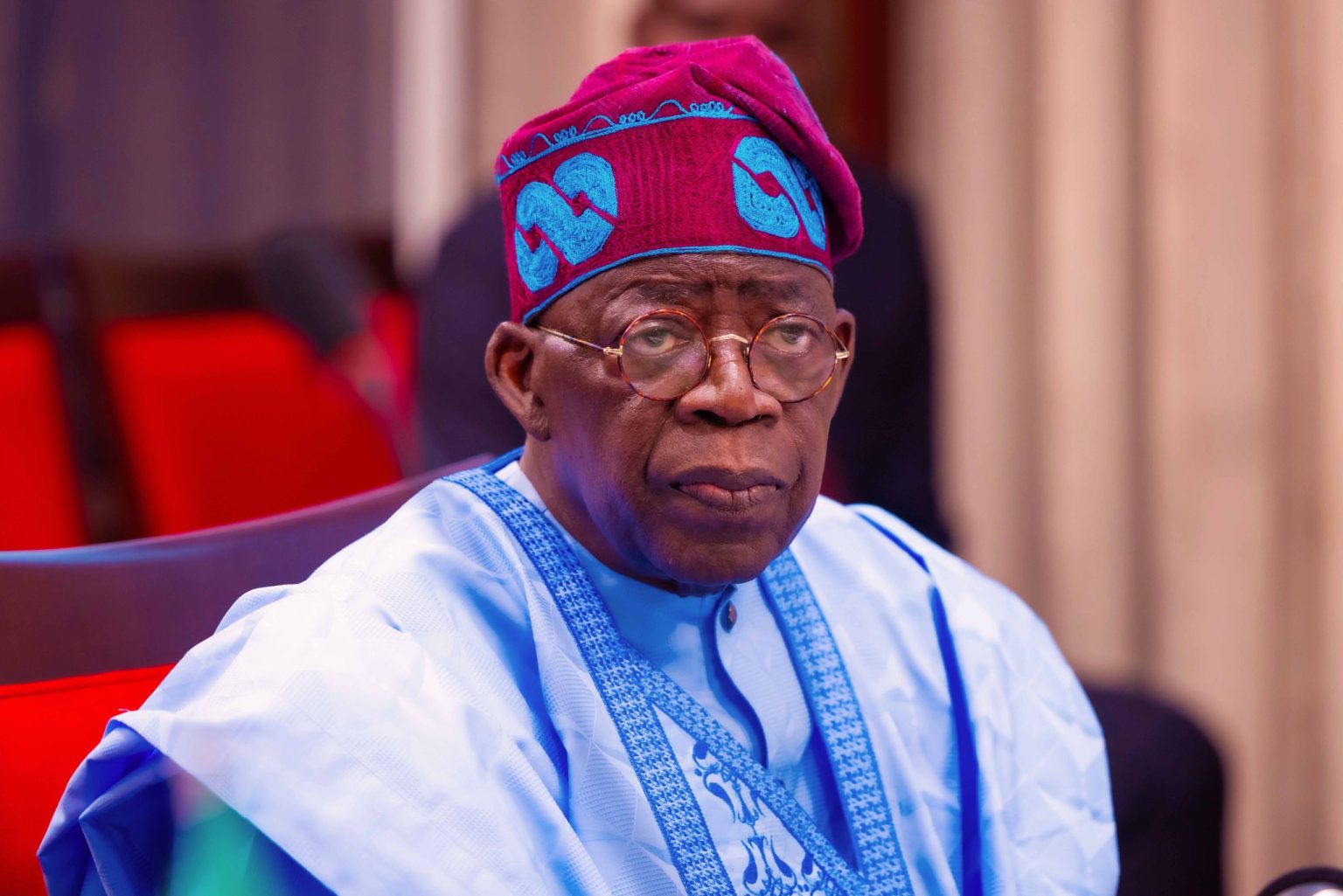
By Tunde Olusunle
Our ambassadors in the national parliament on Wednesday, December 18, 2024, spontaneously broke into a chant, serenading Bola Tinubu Nigeria’s President when he presented the 2025 draft budget to the bicameral body. On your mandate we shall stand gained ascendancy ahead of the 2022 presidential primary of the All Progressives Congress, (APC).
Today, it is probably at par with Nigeria’s national anthem in the circuit of the ruling political party.
Recall the viral video of the Minister for the Federal Capital Territory, (FCT), when he performed to the rhythm on one occasion of his visit to the office of the Chief of Staff to the President, Femi Gbajabiamila a few months ago. The reflex resort of the congressmen to the “mandate” tune on that occasion was in reaction to Tinubu’s joke at the presentation of the budget for 2025.The President had erroneously announced that he was presenting a draft expenditure proposal to the “11th” assembly! He was promptly reminded that we are still in the 10th assembly, in 2024. Tinubu quickly humoured that it could just as well mean that the entire parliament had been reelected for the 11th assembly which begins in 2027.
Tinubu’s budgetary presentation had to be staggered by 24 hours for undisclosed reasons. Reports after the Wednesday December 18 eventual outing, however, suggested that the executive arm of government needed the 24 hours between Tuesday December 17 and the eventual presentation, for very robust, backstage engagements with the legislature. There were feelers to the effect that Tinubu’s budget would be expressly shut down because of his recent propositions on tax reforms which has not gone down well with sections of the country and their representatives.
There are purported reports to the effect that while Members of the House of Representatives were advanced one billion naira each to augment the budgets for their “constituency projects,” Senators allegedly received a minimum of over 100 per cent more under the same nebulous heading. Such largesse should of necessity merit some singing.
While our parliamentarians decked in billowing robes and skyscraping headgears were clapping and caterwauling, giggling and guffawing that Wednesday December 18, 2024, deathly disaster struck in Ibadan, capital of Oyo State. The plan by a nongovernmental organisation led by Naomi Silekunola, a former wife of the Ooni of Ife, Adeyeye Enitan Ogunwusi which proposed to put smiles on the faces of a number of people this yuletide season, had gone awry.
Silekunola and her team intended to gift 5000 children below 13 years of age with a cash gift of N5000 each and offer each of them a food pack. There was a stampede at venue of the programme at Islamic High School, Bashorun District, Ibadan. Poor planning which precluded adequate security cordon, the absence of a standby medical team, among others, precipitated the death of 40 children. Many injured people are still hospitalised.
As though an angel of death was on a yuletide prowl, Okija in Anambra State was its next destination. A magnanimous well-to-do, Ernest Obiejesi, under the auspices of his Obi Jackson Foundation, availed the community of a rice consignment to be shared amongst the womenfolk in the morning of Saturday December 21, 2024, for the commemoration of Christmas. The raw ration came in 10 kilogramme bags of rice, out of which many people received just handfuls in bowls and cups. In the ensuing melee, 36 lives were lost, bodies littering the scene. Many limbs were bruised and broken, they are being patched up in various hospitals.
Despite popular assumptions that the streets of Abuja are paved with gold, the Okija tragedy was replicated, real-time, right at the very heart of Maitama, abode of the nouveau riche. Still in the spirit of the season, the Holy Trinity Catholic Church arranged to distribute food items to the less privileged as Christmas knocks on doors.
The Abuja Command of the Nigeria Police confirms that 13 people including four children died from the surging and trampling at the scene. Over a thousand people have been evacuated from the church, many of the wounded receiving medical attention at the proximal Maitama Hospital, just metres away from the church. Hunger for sure is a deconstructor of geography. Within four days in Nigeria this harmattan season, over 89 lives have lost while foraging for what to eat.
Instructively, a day before the Ibadan tragedy, loyalists and former aides of former President Muhammadu Buhari, flew to his hometown in Daura, to accord him an 82nd birthday surprise. Former Ogun State Governor, Ibikunle Amosun; Secretary to the Government of the Federation, (SGF), in Buhari’s regime, Mustapha Boss; Africa’s richest man, Aliko Dangote, all visited a man largely credited with plunging Nigeria into its seemingly irrecoverable abyss.
Femi Adesina, Buhari’s media minder also sang his boss’ praises on the occasion. He described him as ore mekunu, a friend of the poor, an ascription I found totally out of sync with the realities of his boss’s stewardship. Let’s hope Adesina is seeing on the streets, the hordes of Nigerians, instalmentally transmogrified into pitiable sub- mekunus by Buhari’s eight-year dysfunctional leadership. About 100 Nigerians perished in four day not because of a natural disaster, nor at the theatres of insurgency and military curtailment. They died looking for just that measure of rice to placate their growling stomachs. They died just hours and days after Buhari’s beatification by beneficiaries of his prodigal rulership.
Nigeria has been plunged into the worst economic situation in a whole generation, since the advent of the All Progressives Congress, (APC) at the centre. Poverty has never been as grim and piercing as we’ve witnessed beginning from Buhari’s coming in 2015. Poverty has been ruthlessly weaponised, the poor ready to dance to the drum of a currency note, even a scoop of peanuts. The indicators have determinedly and consistently pointed southwards these past decade.
Inflation is spiralling towards the 35 per cent mark, the unaffordability of basic food items driving mekunus to assured Golgotha in cross-country scrounging, scrambles and stampedes. The same way Nigerians hustle to scoop petroleum products when a tanker falls to the ground, is the same way they throw decorum through perimeters when they are being insulted with sachets of pasta in the name of “palliatives” and “stomach infrastructure.”
The Nigerian Bureau of Statistics, (NBS), is allegedly being bullied by the state to recant on its former announcement that N2.3 Trillion was paid out as ransom to bandits, criminals and kidnappers in the first 10 months of this year. The NBS which has belatedly announced that its systems were hacked, is in good company with the Independent National Electoral Commission, (INEC). INEC’s servers and terrestrial equipment are perennially compromised when election figures tend towards victory for the opposition.
The President recently hailed the peaceful and transparent conduct of the presidential election in Ghana, recommending it as a model for Nigeria. Sadly, it should be the other way round. Other countries should take inspiration from the way we conduct our affairs in Nigeria.
Nigeria prides itself as the giant of Africa. Many African countries look up to Nigeria for guidance, for leadership. Our exploits in the liberation of countries like South Africa from apartheid, and the restoration of peace and democracy to neighbouring Gambia, Guinea, Liberia and Sierra Leone, are well documented. We recently offset our outstanding dues to the Economic Community of West African States, (ECOWAS), totalling over N150Billion.
We do well at bragging and flexing our muscles, but fail where it matters the most. An essential characteristic of Ghanaian elections over the years, is the fact that the ruling party can be displaced by the opposition today. This allows the party so ousted to go re-strategise for the future. What do we do in Nigeria where election results are predetermined, where the electoral process is wholly corrupted, where true winners are intentionally dispossessed of their mandates and encouraged to seek redress in the judiciary? Didn’t a senior government official say in relation to Ghana’s exemplary election that a sitting government cannot be unseated in Nigeria? The stories of the backstage electoral thieveries anchored by INEC over the years will be told someday.
President Tinubu cancelled his official engagements for Saturday December 21, 2024, in honour of victims of the Ibadan, Okija and Abuja tragedies. Nigeria’s leadership must transcend the culinary indulgence and the merry-making occasioned by the yuletide to undertake very imperative introspection. There must be less dangerous, less dehumanising and less deathly avenues for lifting up the poor and indigent in our ranks.
The President is celebrated as some economic whiz kid. Enough of the demeaning, insulting and dubious handouts always purportedly passed on to the less-endowed by ways of very opaque “cash transfers” and the “lorry loads of palliatives.” Can someone please show me a register of transfers to my constituents back home in my community?
That scheme is wholly and totally a scam. Nigeria is not Somalia or Chad and similar countries ravaged by war and hunger, where the United Nations, (UN) and the Red Cross, drop dry rations from hovering helicopters into the hands of starving populations. Nigerians deserve a much, much better deal away from the most despairing status quo. Nigeria is too endowed to wilfully preside over the sustained pauperisation of its people.
Olusunle, PhD, Fellow of the Association of Nigerian Authors, (FANA), teaches Creative Writing at the University of Abuja.
OPINION
Tinubu and the Future of ECOWAS

By Reuben Abati
Two major meetings were held over the weekend that just passed that have implications for the future of the Economic Community of West African States (ECOWAS) and the possible resolution or otherwise of political developments among member-states in the last two to three years, with implications for the future of the sub-regional organisation.
ECOWAS was established in May 1975, when 15 West African states signed the Treaty of Lagos to establish a platform for the promotion of economic integration. This particular treaty was revised on July 24 1993, but the essential purpose of ECOWAS has remained consistent: trade facilitation, free movement of persons and goods, solidarity, promotion of human rights and peace.The sixteenth member joined in 1977, making the membership 16. In addition to its many guidelines and principles, ECOWAS has a general framework which also guides protocols and relations among members. In July 1991, it adopted the Declaration of Political Principles as a cardinal rule, and in 2001, the ECOWAS Supplementary Protocol on Democracy and Good Governance. One of those protocols is the underlying trigger for this commentary, to wit: the principle of customary international law enshrined in Article 2 (4) of the 1945 UN Charter which binds member-states against the use of force as a means of changing governments, in the absence of armed attack or self-defence.
In 1978, ECOWAS signed a protocol on non-aggression against member states and in 1981, members agreed that in the event of any act of aggression against a member, they would come together in mutual self-defence and protect the victim-state to ensure peace, security and stability, by military means if possible and if inevitable, as seen in the interventions of ECOMOG in Liberia (1990) and Sierra Leone (1998). Even the African Union (AU) enabled by its Article 4(h) can be called upon to intervene when the basic protocols have been breached. This however is a slightly complicated area of the subject which we need not bring into this commentary.
What we know is that ECOWAS specifically sees pro-democratic intervention as its bounden duty, but the effectuation of this has been a problem in the sub-region over the years and to cite a recent example, in 2016, when ECOWAS threatened to deploy a standby ECOWAS force in The Gambia to restore the people’s wish if Yahya Jammeh refused to leave office. Jammeh was eased out and a standby force did not have to intervene.
But a turning point came for ECOWAS when the military seized power in Mali in 2020 and 2021, Guinea in 2021, Burkina Faso in 2022, and Niger in July 2023. ECOWAS, with Nigeria’s President Bola Tinubu as Chair, thought it needed to intervene to return these countries to democracy, the rise of military juntas in the sub-region being a threat to democratic consolidation. ECOWAS suspended the states in line with its protocols and proceeded to impose political and economic sanctions. It threatened to deploy troops if it became necessary. This was an act of political miscalculation.
In the four countries, there were civilian protests against ECOWAS, particularly in former French colonies of Burkina Faso, Niger and Mali. The more interesting part of it is that the ECOWAS was accused of being too pro-French. In Burkina Faso, Mali and Niger, the people publicly denounced continued association with France and specifically in Niger, the people openly waved Russian flags and pulled down French flags.
From Senegal to Niger, a wave of rebellion erupted in the former colonies, in what signalled a creeping failure of French relations with its former colonies in Africa. Senegal has had to shut down French military bases to assert its sovereignty, in Burkina Faso the military junta revoked gold permits that had been awarded to French companies, in Niger, the government similarly cancelled the mining permit of Orano, the French nuclear producer that runs the uranium mines in that country.
In addition, Niger revoked its tax co-operation treaties with France as also did Mali, which broke off from its defence accord with France, and its 11 colonial agreements with the former overlord. In the vacuum created by these new realities, Russia and its Wagner group became the favourite partner of former French colonies in West Africa. The Sahel region has been a hotbed of violence and terrorism and naturally, there were concerns about the implications of the presence of Russia and Wagner in the sub-region and the festering anti-West sentiments in the backyard of ECOWAS members. ECOWAS eventually had to review its threat of sanctions, and military action and adopted the options of diplomacy and dialogue.
This achieved little or nothing. In January 2024, Burkina Faso, Mali and Niger announced their decision to quit ECOWAS. They formed the Alliance of Sahel States (AES) as their own confederation as an alternative to ECOWAS. Their departure under Article 91 of the Revised ECOWAS Treaty would become effective on January 29, 2025. The resort to diplomacy, an afterthought by ECOWAS also yielded no results. In July, ECOWAS appointed President Bassirou Faye of Senegal as the mediator with the aggrieved countries. President Faure Gnassingbe of Togo was also sent on diplomatic shuttles to Niger. President Tinubu as ECOWAS Chairman, also sent other envoys to the Sahel.
Barely a month before the January deadline, there was a meeting of Ministers of Burkina Faso, Niger and Mali in Niamey last Saturday, December 14, where they reiterated that the departure of the three countries from ECOWAS, effective January 29, 2025, is “irreversible.” They however also resolved that the three countries would remain visa-free for all ECOWAS countries after the exit. While the latter resolution may alleviate fears about the free movement of goods and services, there is still the residual challenge of insecurity in the Sahel and the threat of a further tumultuous season in that part of West Africa with wider implications for regional peace.
It is perhaps out of this realisation that the Authority of Heads of State and Governments at its 66th Ordinary Summit last weekend, Sunday, December 15 at the State House in Abuja, decided to vary Article 91 of the Revised Treaty and granted the departing trio an extension of six months from January 29 to July 29. This is basically to create room for further diplomatic negotiations in the hope that the three countries can be brought back into the fold. In Niamey, on Saturday, the AES Ministers still made it clear that ECOWAS leaders are too subservient to France.
Without being specific, they may well have been referring to President Tinubu who recently returned from France where he was treated to a lavish and grand reception by President Emmanuel Macron. It remains to be seen whether the AES would reverse itself. It is a long wait but as certain as daylight, July 29, 2025 would soon be upon us. In the meantime, the ECOWAS Commission has been directed to begin work on the necessary withdrawal formalities, while the mediator continues with last-ditch efforts to keep the dream of the founding fathers of ECOWAS alive, giving the AES an opportunity to have a re-think.
It is further instructive that at the ECOWAS meeting of Heads of States and Governments, President Tinubu, Chairman, took time out to praise the just concluded general elections in Ghana and parliamentary elections in Senegal. He even praised Ghana’s Vice President Mahamudu Bawumia of the ruling New Patriotic Party (NPP) who conceded defeat to the candidate of the opposition, President John Mahama of the National Democratic Congress (NDC). He praised the government and people of Ghana for their maturity. This was a subtle dig at the leaders of the West African countries where the military chose to resort to force and aggression. Without a doubt, the rise of military juntas poses a threat to democracy in West Africa and peace in the region. The romance of the juntas with Russia and China dangerously positions the region as a territory for proxy conflicts among major Western powers. It is an ill-wind. ECOWAS needs to do more to persuade the errant countries to restore constitutional order. The leaders also need to reinvent and retool the organisation.
By next July, it will be 50 years since ECOWAS was established. It would be pertinent to ask: how has the body fared? Has it so far fulfilled the ambitions of its founding fathers? Today, only one of those leaders who established ECOWAS in 1975 is still alive. Would General Yakubu Gowon of Nigeria be proud of what ECOWAS has become? What are the challenges facing the body? How can it be reformed? Mutual suspicion among the various blocs: Anglophone, Francophone and Lusophone has been a major issue for ECOWAS: how can the goal of integration be better realised? In 50 years, whatever the challenges may have been, it can be said that ECOWAS has been pivotal in forging cooperation, integration and trade within the region. ECOWAS in 2010 adopted Vision 2020, and also later a Vision 2050 roadmap to deepen the original objectives of the association.
There may have been challenges: insecurity in the Sahel, Boko Haram in the Lake Chad Basin, Ebola, COVID-19 and the emergent threat of military juntas, but on the whole, the main achievements of the body deserve to be celebrated. ECOWAS fought to restore peace in Liberia and Sierra Leone, and has been vocal in insisting on good governance. There are hitches in person-to-person relations within the body, over trade, commerce and space, but the free movement of goods and services has been largely beneficial. ECOWAS ranks probably as the most successful regional economic bloc in the continent, in terms of conflict management.
But ECOWAS has lost steam. It needs re-organisation. It is unfortunate that the same ECOWAS that acted decisively in Liberia, Sierra Leone and The Gambia is now the same body that is now being treated scornfully by a group of military adventurists who have reversed democratic progress in the Sahel. Their effrontery is fuelled by the descent into poverty and anomie in their countries. The clamour for change that compelled the people of Burkina Faso, Mali, Guinea and Niger to embrace the military is simply their frustration with the leaders in those countries. The people seek change and they embrace it in whatever shape it presents itself, with high expectations too, because they no longer trust their leaders who have alienated them and placed a greater accent on their own elite well-being rather than the common good for the people’s benefit.
The people are led by persons who promote injustice, inequality, and nepotism. They rig elections and do not allow the people’s votes to count. When the military intervenes, the people see the intervention as a form of liberation from the shackles of oppression. In Burkina Faso, Niger and Mali, they trooped to the streets in jubilation, almost like the situation today in Syria with the fall of Bashar Assad and the Assad dynasty, one of the most murderous ruling houses in the Middle East which clung to power for 54 years. In Mali in August 2020, when Mali’s President Ibrahim Boubacar Keita was removed in a military coup over allegations of corruption, fraud and electoral violence, the people were joyous. They carried placards saying “This isn’t a coup. It is a Revolution”. There was yet another coup in May 2021. Similarly in Niger in 2023, thousands of people gathered to hail the generals who led the coup in that country. The urgent matter that West Africa needs to resolve is the challenge of good leadership and governance.
There is a need at the organisational level for a re-dedication to the ideals of ECOWAS, and to develop a higher sense of belonging among the member-states and the over 420 million people that make up the region. As ECOWAS steps into its 50th year, it is in urgent need of reform and we need to see the members being faithful. At the last meeting of the ECOWAS Authority of Heads of States and Governments, Omar Alieu Touray, President of the ECOWAS Commission, commended Nigeria for having paid up its community levies for 2023, with the 2024 levy paid up to July this year. He advised other member states to emulate Nigeria’s example. I guess it has become a habit among ECOWAS members to allow Nigeria to do the heavy lifting in terms of funding while others tag along and yet enjoy the benefits of membership.
It is important that all parties pay their levies as and when due. The various structures of the body must be overhauled to ensure equity and deepen trade facilitation. The ideals of free movement of persons across the region should be enhanced. It must be possible for any national of an ECOWAS state to live and work in any of the member states without being subjected to undue discrimination or harassment. The celebration of ECOWAS at 50 must be an occasion for sober reflection and renewal. President Bola Tinubu was elected for a second term as chairman of ECOWAS in July 2024. He would preside over the 50th-anniversary celebrations before handing over the seat in July 2025. He may have listed some of his achievements as ECOWAS chairman at the 66th Ordinary session in Abuja; he would be required to give a fuller account of his tenure and the status of ECOWAS as part of the 50th anniversary. There is a lot more that can be done.
OPINION
Still on State Police
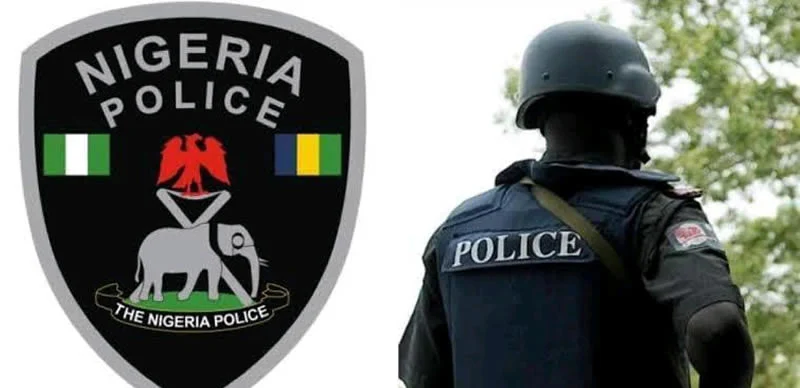
By Dakuku Peterside
When a policy fails to factor in public response to its benefits and drawbacks, success takes the backseat. Ignoring public behaviour often results in poor implementation and unintended consequences.
In Nigeria, a nation grappling with complex and diverse security challenges, the limitations of centralised policing have become glaringly evident.
Rising crime rates, from terrorism and banditry to cybercrime and kidnapping, expose the inadequacies of the current federal system. The call for state police is not just a matter of political discourse; it is a necessary step toward securing the lives and property of Nigerians.This proposal has gained unprecedented traction across regional and political divides, signalling that the time is ripe for this crucial reform.
The urgency of decentralising policing by introducing state police could provide the much-needed local focus to counter insecurity while fostering accountability and community trust. This vision aligns with global best practices and offers hope for a safer and more prosperous Nigeria, where localised and specialised law enforcement can effectively address the diverse security needs of the population.Throughout history, nations have recognised the need for adaptable and localised law enforcement structures. In the early 20th century, the United States established state police forces to address rising crime and extend law enforcement beyond the capabilities of local authorities. The Pennsylvania State Police, formed in 1905, became the first uniformed state law enforcement agency in the U.S., designed to handle challenges that local sheriffs and municipal officers could not adequately address. This included labour unrest in coal mines and maintaining order in rural areas without sufficient local law enforcement. Over time, state police forces such as the Texas Rangers and California Highway Patrol expanded their scope, dealing with issues from highway safety to organised crime. These forces were pivotal in ensuring law enforcement matched the complexities of an industrialising and urbanising society.
The U.S. experience provides a critical lesson for Nigeria: decentralisation enhances law enforcement’s ability to respond to local needs. For instance, during the Prohibition era, state police units were instrumental in curbing illicit alcohol trade in their jurisdictions, a task federal authorities alone needed help to handle effectively. Similarly, the adaptability of state police allowed them to pioneer specialised units, such as cybercrime task forces in recent decades, which have become crucial in tackling modern criminal activities.
Nigeria’s security challenges, including insurgencies in the North and urban crimes in Lagos and Abuja, could greatly benefit from similar localised and specialised approaches. For instance, a state police unit in Lagos could prioritise urban crimes such as theft and traffic-related offences, while a unit in Borno might focus on counterterrorism efforts against Boko Haram insurgents. This targeted approach could lead to more effective solutions than a one-size-fits-all federal system.
Globally, decentralised policing systems offer valuable lessons. Countries like Canada, India, and South Africa demonstrate how local accountability and responsiveness enhance security. Canada’s provincial police forces work collaboratively with municipal and federal agencies to address diverse security needs. In India, state police forces are indispensable in combating localised crimes and maintaining law and order, especially in states with unique cultural and geographical contexts.
For example, Maharashtra’s state police in India have implemented technology-driven initiatives to combat cybercrime, which would be impossible under a rigid centralised system. These systems are bolstered by robust oversight mechanisms to prevent misuse, ensuring their effectiveness and integrity. Nigeria can draw inspiration from these examples, adapting these practices to suit its unique challenges. This global perspective further strengthens the argument for the state police proposal in Nigeria.
The current structure of Nigeria’s federal police reveals its limitations. With approximately 370,000 officers, the police-citizen ratio is about 1:650, significantly higher than the UN-recommended ratio of 1:450. This shortfall is glaring in a nation of over 220 million people, where security challenges vary dramatically across geopolitical zones. The Inspector-General of Police has highlighted the need for an additional 190,000 personnel, yet estimates suggest that Nigeria requires up to 2.5 million officers for effective policing. Over the past decade, crime rates have surged by over 30%, with kidnapping, banditry, terrorism, and cybercrime becoming increasingly sophisticated and prevalent. In 2022 alone, there were over 3,500 reported kidnapping incidents nationwide, underlining the urgent need for localised and agile policing responses. The introduction of state police could help address this issue by allowing for a more targeted allocation of resources based on regional security needs, potentially improving the police-citizen ratio and overall security.
Support for state police has grown significantly among policymakers, security experts, and civil society groups. A growing consensus is that decentralising policing would empower local authorities and enhance operational efficiency. Even state governors from historically divided northern and southern regions have united in supporting state police. One significant highlight of the 147th National Economic Council (NEC) is a new consensus by all state governments on establishing state police. However, this initiative requires a more robust but speedy engagement to align it with the local cultural context, ensuring that it is appreciated and supported by the citizens it aims to serve. Citizen engagement is not just a formality, but a crucial step to ensure public understanding and support for the state police proposal.
Building trust between state police and local communities is a crucial advantage of this reform. Effective local policing initiatives can foster relationships that build trust and cooperation, especially in Nigeria, where the trust deficit is high. Trust is an essential component of crime fighting. Innovative local community-police liaison arrangements and other community-focused programs can strengthen these ties, creating an environment of mutual respect and collaboration. When police officers understand their communities’ cultural and societal dynamics, they are better equipped to address security challenges and maintain peace. The active participation and trust of the Nigerian public in this reform process are crucial for its success.
Concerns about the potential misuse of state police for political purposes are valid but can be systematically addressed. Abuse of State Independent Electoral Commissions (SIEC) by state governors is often cited. This is another reason why extensive and targeted citizen engagement is key before putting the law in place. Safeguards must be designed and implemented to prevent governors from exploiting state police for political and electoral manipulation purposes, personal gain, or to feed their authoritarian appetite.
Laws prohibiting state police involvement in electoral matters and empowering oversight bodies can ensure neutrality. Clear delineation of the roles and responsibilities of state and federal police will also be essential to avoid jurisdictional conflicts. Establishing a framework for collaboration and information-sharing between the two levels of law enforcement will further enhance effectiveness. However, these measures will require careful planning and execution to ensure their efficacy and address potential challenges such as resistance to change and extensive training and capacity building.
Independent regulatory bodies are critical to ensuring accountability and preventing abuse. A State Police Security Commission (SPSC), comprising representatives from civil society, established professional bodies, legal experts, and public security professionals, could oversee state police operations. Regular audits and public reporting ensure transparency. Additionally, a robust judiciary is essential to protect citizens from potential abuses. Judicial reforms that enhance the independence and efficiency of courts would be vital in supporting this transition. For instance, in Canada, provincial ombudspersons have played pivotal roles in monitoring police misconduct, providing Nigeria with a possible blueprint for ensuring accountability.
Strengthening relationships between police and communities through genuine engagement and collaborative problem-solving must remain a priority. Establishing community advisory boards can provide platforms for dialogue and accountability. Actionable trust-building initiatives, such as open-door policies and periodic town hall meetings, should replace superficial slogans like “Police is your friend.”
Addressing insecurity also requires holistic solutions. Investments in education, healthcare, and youth empowerment are essential for tackling the root causes of crime. Integrating vocational training and social services into crime prevention strategies would complement policing reforms, creating a foundation for sustainable security. For example, a similar approach in India’s Kerala state led to a 40% reduction in youth crime over a decade.
Introducing state police in Nigeria represents a transformative opportunity to address the nation’s security crisis. While challenges are inevitable, they should not deter progress. Beginning the decentralisation process will allow for the identification and resolution of potential issues as they arise. The widespread consensus around reforming Nigeria’s policing architecture underscores the urgency of this change. With proper safeguards, political will, and public support, state police can become a cornerstone of a more secure, equitable, and prosperous Nigeria.
A prerequisite is the government’s robust public engagement and orientation programme to get the complete buy-in of all stakeholders, including the National Assembly, the state assembly and the masses. The time to act is now, and this reform must be embraced as a step toward a brighter and safer future for all Nigerians. Establishing state police would signify a shift in policy and a bold reimagining of Nigeria’s approach to security—one that prioritises the people, respects regional diversity, and lays the foundation for sustainable peace and progress.

